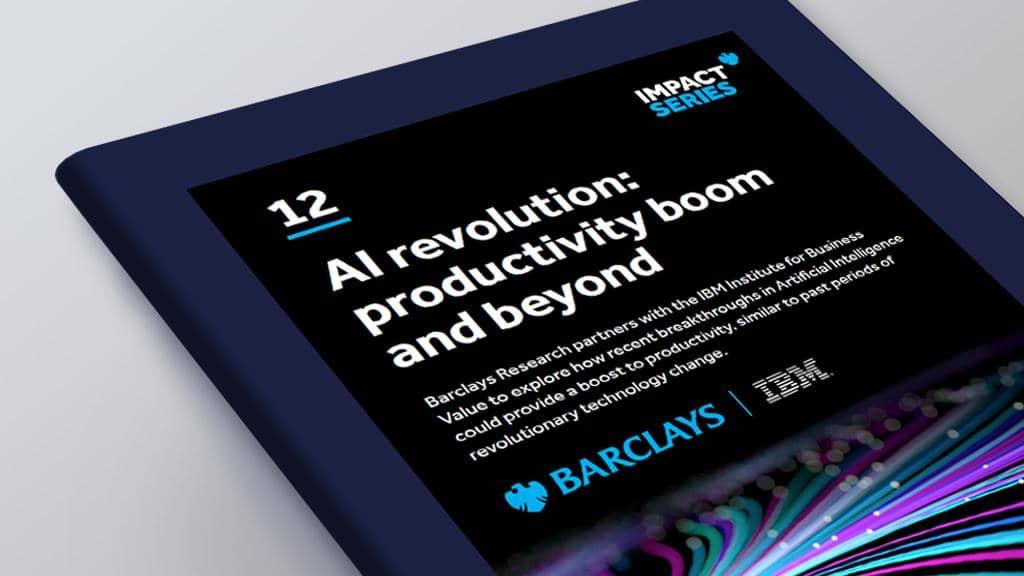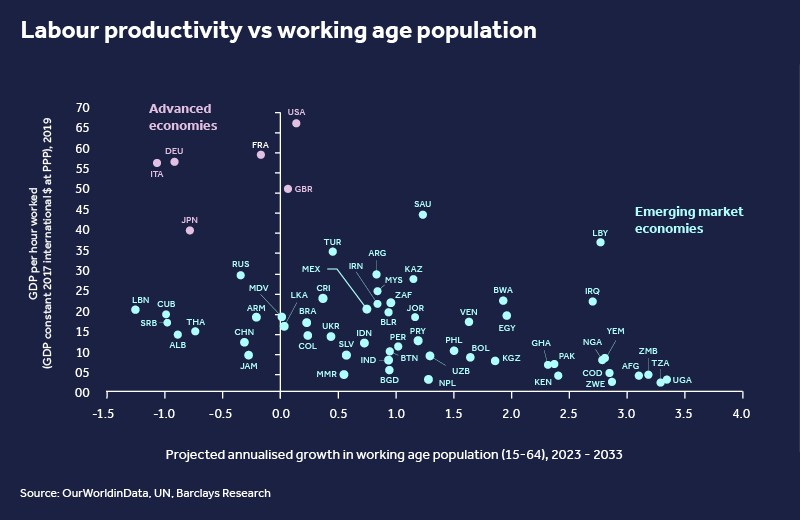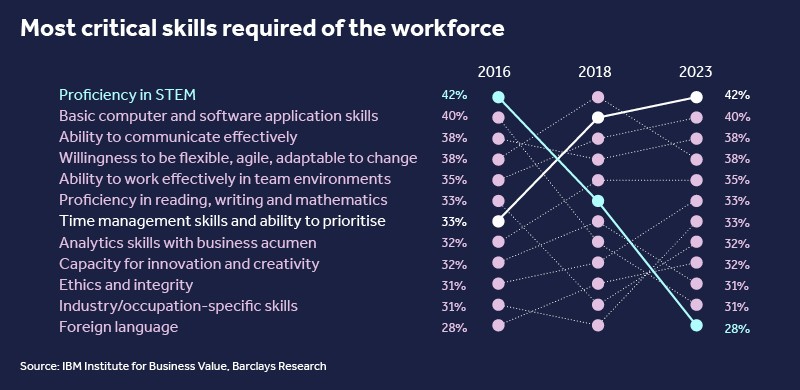
Barclays and IBM analyze how AI’s accessibility and versatility could bring a boost to productivity
A new Barclays Impact Series report, authored in partnership with IBM’s Institute for Business Value, explores how breakthroughs in generative AI could possibly drive a productivity boom similar to past periods of revolutionary technology change.
LONDON, 11 January 2024 - Barclays Research and IBM’s Institute for Business Value today released a new Impact Series report, entitled “AI revolution: productivity boom and beyond.” The report examines whether AI can become the final accelerator to boost productivity and what this could mean for industries and the wider economy.
“The world’s demographic patterns are shifting in unprecedented ways and productivity growth in advanced economies has been disappointingly low over the past two decades, despite rapid growth of the digital economy,” says Christian Keller, Head of Economics Research. “Harnessing AI’s productivity gains has the power to offset the decline in the skilled labour force in advanced economies and allow ageing societies to achieve economic growth.”

“AI can unlock productivity gains that will lead to significant business innovation and societal impact,” says Ana Paula Assis, Chair and General Manager IBM EMEA. “We are witnessing a pivotal moment where AI has become a multi-purpose technology, with applications that have the potential to reinvent virtually every workflow and process, as well as transform the work of professionals both those who are skilled and those who are low- or no-skilled in technology.”

Barclays’ Impact Series uses data-driven analysis to explore economic, demographic and disruptive changes affecting markets, sectors and society at large. The key findings of today’s report include:
- For developed economies, the implications are far-reaching. An AI-led boom could help to offset some of the productivity effects of shrinking working-age populations
- When it comes to the emerging world, the picture is different: working-age populations are still expanding, but skills and education levels can be more limited, which applies downward pressure on GDP-per-hour-worked. If AI leads to job augmentation in developing economies, it could create more productive workers and, thus, better paid jobs
- The policies adopted by companies, industries, and regulators will have a large bearing on the delivery of the promised benefits of AI and how those benefits will be distributed

Click here to read the full report
About Barclays
Barclays is a British universal bank. We are diversified by business, by different types of customer and client, and by geography. Our businesses include consumer banking and payments operations around the world, as well as a top-tier, full service, global corporate and investment bank, all of which are supported by our service company which provides technology, operations and functional services across the Group. For further information about Barclays, please visit our website home.barclays.
About Barclays Corporate and Investment Bank
Barclays Corporate and Investment Bank is comprised of the Investment Banking, International Corporate Banking, Global Markets and Research businesses. It provides money managers, financial institutions, governments, supranational organisations and corporate clients with services and advice for their funding, financing, strategic and risk management needs. For further information about Barclays Corporate and Investment Bank, please visit our website www.cib.barclays.
About the IBM Institute for Business Value
For two decades, the IBM Institute for Business Value has served as the thought leadership think tank for IBM. What inspires us is producing research-backed, technology-informed strategic insights that help leaders make smarter business decisions. From our unique position at the intersection of business, technology, and society, we survey, interview, and engage with thousands of executives, consumers, and experts each year, synthesizing their perspectives into credible, inspiring, and actionable insights.